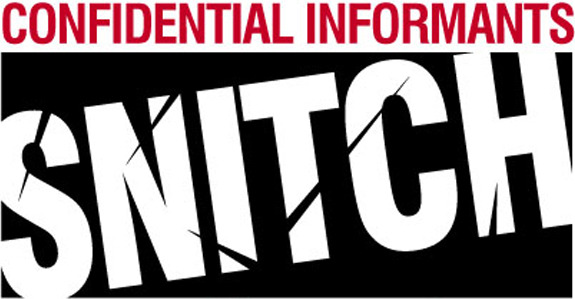Anti-doping crusaders are actively working to create a culture of informants and snitches in an effort to catch athletes guilty of using anabolic steroids and other performance-enhancing drugs (PEDs). Prominent anti-doping spokespersons are seeking to involve athletes, support personnel and even ordinary people as collaborators in its system of athlete surveillance.
This week, IAAF President Lord Sebastian Coe and UKAD Chief Executive Nicole Sapstead both promoted snitching as an honorable way of putting a stop to steroid use in sports.
IAAF President Coe made an open appeal to athletes to turn on their fellow athletes and coaches in the name of anti-doping. Athletes are in the trenches. They know what is going on. And Coe wants them to be the eyes and ears of anti-doping officials.
Coe hoped to convince athletes that it is their duty and responsibility to turn on their fellow athletes, coaches and teammates. In fact, now is the “golden opportunity” and “historic moment” where athletes can collaborate to destroy the careers of anyone they suspect of having anything to do with doping.
“It’s a golden opportunity, that is not necessarily going to present itself again, for our sport to grab this moment. This is a historic moment,” Coe said. “They’re there, at the side of the track, they’re in the training groups. They know the coaches not doing it with integrity. They can help us and that’s really important…
“And I make this offer to all athletes. If you think you can help us get through this pathology quicker, if you can help us understand the nature of the challenge that we’re dealing with., grab it with both hands and come forward.”
And if athletes do come forward to rat out anyone else, Coe promised that they will be treated as heroes just like Yulia Stepanova. Stepanova is the Russian athlete who was the primary whistleblower in the investigation that exposed systematic and state-sponsored doping in Russia. The information provided by Stepanova as an informant resulted in the unprecedented ban of the entire Russian athletics team from participation in the 2016 Summer Olympics in Rio de Janeiro.
“I don’t mind athletes showing passion and being outspoken about this, but they also have a responsibility to help us and position themselves as part of the solution rather than just sitting there and saying ‘Well I didn’t get a medal because,’” Coe said. “They do need to be in a position where they’re really prepared to stick their heads above the parapet.”
While Coe may have made an appeal solely to athletes, UK Anti-Doping Chief Executive Sapstead didn’t stop there. Sapstead did her best to recruit support staff, including coaches and parents, as snitches in service of the anti-doping crusade.
Coe may have wanted athletes to snitch on support personnel but Sapstead wanted support staff to snitch on athletes. Sapstead hoped that parents would even snitch on their children or at least snitch on their children’s teammates. Sapstead even personally thanked a father for snitching on his son’s teammate.
In the case of 19-year old cyclist Gabriel Evans, Sapstead was grateful that a teammate’s father rigged a Go-Pro camera to covertly film Evans removing a vial of erythropoietin (EPO) from the refrigerator. The teammate’s father confronted Evans with the video evidence and secretly recorded the ensuing conversation with his smartphone. He then turned over the incriminating evidence to anti-doping authorities.
“What this case also highlights is the important role that support staff play in protecting athletes. I thank the person who came forward with information and evidence of doping,” Sapstead said. “By doing so, they have called out wrong-doing and safeguarded the welfare of a young athlete.
“Support staff, coaches and parents must all help their athletes to make informed decisions to maximise performance in the right way. They also have a duty of care to protect athletes, and their sport, by talking to us in confidence if they know of someone contravening the anti-doping rules and the spirit of sport.”
The anti-doping crusade wants to create its own police state with a massive surveillance infrastructure involving ordinary people, such as parents, friends and family, along with athletes and support personnel, including coaches and doctors, to crack down on steroid and PED use.
Welcome to the sad, sad future of sports.

